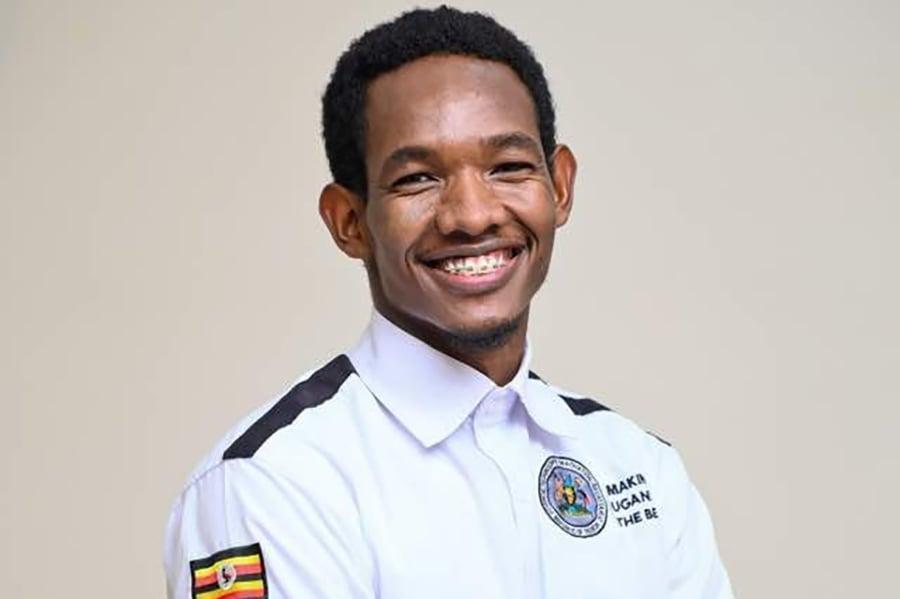By Elijah Turyagumanawe
Africa-Press – Uganda. First, a special thank you to Mr Trump. Perhaps his recent remarks will serve as a much-needed wake-up call to Africa’s youngest population—an urge to abandon narrow political ambitions and instead focus on championing realistic, homegrown economic policies.
Policies that fuel genuine development, create jobs, and transform lives both at the grassroots and national levels. It’s time we craft new solutions for new challenges—solutions we must provide for ourselves.
Decades of research from globally respected institutions—Harvard, Oxford, the IMF, and the World Bank—have consistently shown that foreign aid has largely failed to catalyze growth in developing nations.
Despite this, many in Uganda still cling to the illusion that wealthy nations owe us a financial lifeline. Like a young adult stepping out of their parent’s home, self-reliance may be tough at first, but it is essential for long-term success. Aid fosters dependency, and this mindset has deeply permeated our society.
For far too long, Uganda has taken a back seat in contributing to its own GDP growth, instead relying on foreign powers under the guise of charity.
Where is the African pride? When did we become so numb to the blatant disrespect repeatedly directed at us? In Confessions of an Economic Hitman, John Perkins details the sinister strategies used by global powers to entrap developing nations—offering aid and loans we cannot repay, laced with suffocating conditions designed to keep us in check.
Take Uganda’s recent rejection of Western-imposed LGBTQ ideologies as an example. In response, the United States withdrew Uganda from the African Growth and Opportunity Act (AGOA), and the World Bank froze funding. This is clear evidence: nothing is ever truly free.
As stated in the documentary ‘The Social Dilemma’, “If you are not paying for the product, you are the product.”
Superpowers have mastered the art of subtle control—shaping narratives, filtering content, and perpetuating superiority complexes—all while Africa becomes increasingly dependent.
This brings to mind the biblical tale of Jacob and Esau—the selling of one’s birthright for short-term gain. In the same way, global powers are scrambling to dominate Africa through grants, loans, and strategic partnerships. But basic negotiation principles teach us to “beware of the free lunch.” There is always a price to pay, whether visible or hidden.
True leadership is about standing for what is right, even when it means standing alone. As Uganda approaches the 2026 general elections, there is a political awakening among young people seeking to influence national policy.
The last electoral cycle, driven more by emotion than strategy, ushered in a largely unprepared Parliament. We must learn from that experience. In established democracies, elections are driven by logic and policy—not outrage.
Uganda needs a new generation of leaders who practice “brutal integrity.” Only then can we defeat corruption. Our national resources are more than sufficient to drive sustainable development—but not in a culture where theft is normalized under the guise of decentralization.
The system of patronage, fed by aid and foreign donations, only deepens this rot. As a society, we must return to our cultural roots, where community, honor, and responsibility were central.
Over 80% of Uganda’s challenges can be addressed by strengthening our cultural foundations and eliminating corruption at all levels. Recently, a misguided scholar claimed that “corruption doesn’t hinder development.” I was appalled. Such defeatist thinking has no place in Uganda’s future.
It’s hard not to mention Ibrahim Traoré, the current and youngest president of Burkina Faso. Since taking office in September 2022, he has reformed healthcare and education, expelled foreign economic manipulators, stopped the export of unprocessed minerals, and drastically cut unnecessary government expenditure.
He is proof that patriotic, disciplined leadership can work in Africa.
With Uganda’s 2026 elections on the horizon, many aspiring leaders are preparing to run. I wish them well—but urge them to lead selflessly. That is what Uganda needs now more than ever.
The incoming leadership will face a daunting landscape: fragmented industries, high youth unemployment, rampant corruption in public service, outdated education systems, inadequate health infrastructure, and poor planning.
Sometimes I wonder—do we truly love ourselves? Uganda often resembles a home swept clean only on the surface, hiding the dirt under a sparkling couch.
These problems cannot be solved by outsiders. Ugandans must take responsibility—either through deliberate, values-driven leadership or comprehensive economic and legal reforms. Change starts with thinking differently. Everything hinges on the law.
If we must amend the 1995 Constitution, revise the Penal Code, overhaul trade laws, and update our science, technology, and innovation (STI) policies—so be it. These reforms are crucial if we are to achieve the ambitions of Uganda’s Vision 2040, which targets a leap from $55 billion to $550 billion in GDP over the next 15 years.
As the proverb goes, “Tulekye kwijjuka kweshweeka bwasesire” — let us not remember to cover ourselves only when dawn breaks.
A Final Word
Uganda must reclaim its competitive edge in East Africa. While Kenya, Tanzania, and Rwanda aggressively attract foreign investment and define economic niches, Uganda appears stuck in limbo—blessed with abundant resources but cursed with indecision. A young, talented nation that’s wasting precious time.
We must stop exporting raw materials and start building industries. Our tropical climate and fertile soils should be tools of transformation, not sources of complacency. If we are rich in tourism potential, why haven’t we built the infrastructure to support it?
I end with a call to action: Ugandans must take charge—starting at the micro-level. Reject the “government etuyambe” (let government help us) mindset. Government can only do so much. Real change starts with individual responsibility, community engagement, and a shared commitment to building the Uganda we all deserve.
Stay blessed.
Mr Elijah Turyagumanawe is a journalist and economics enthusiast (Strategic Communications Officer, STI-OP)
For More News And Analysis About Uganda Follow Africa-Press






